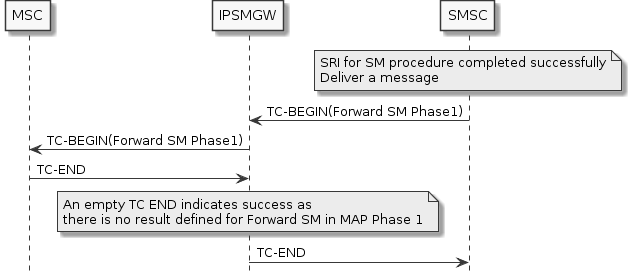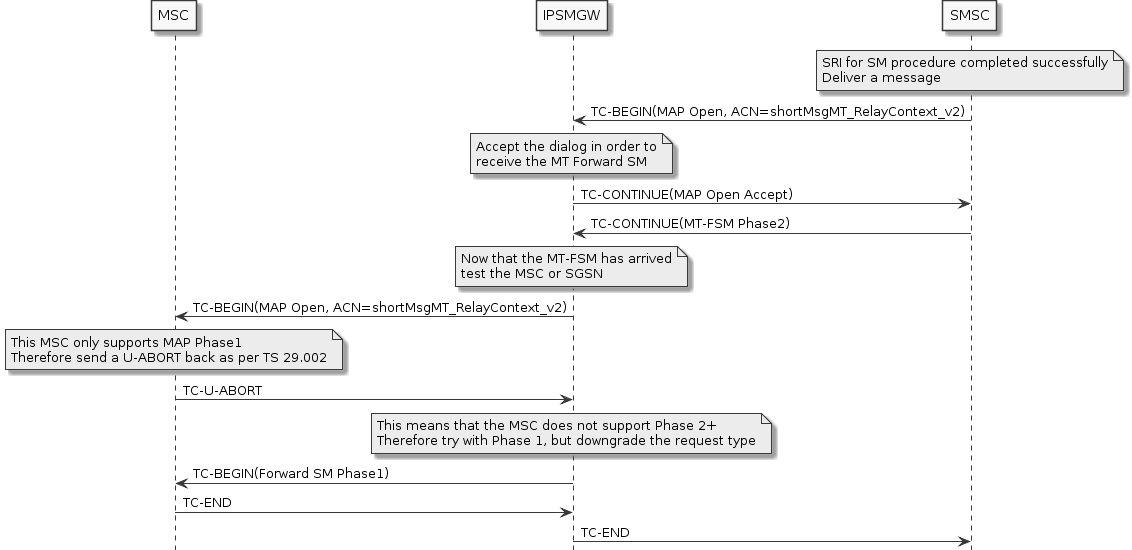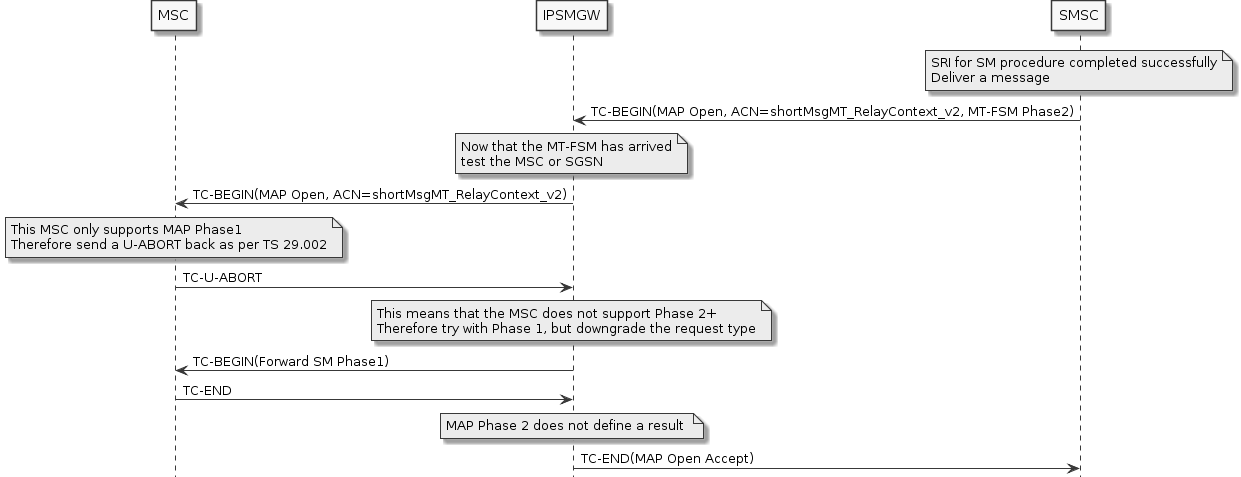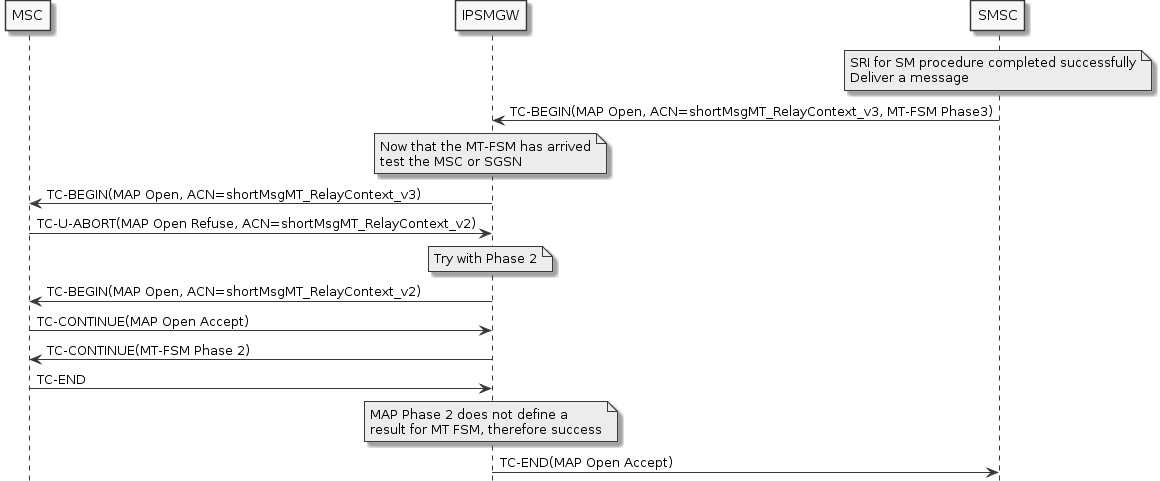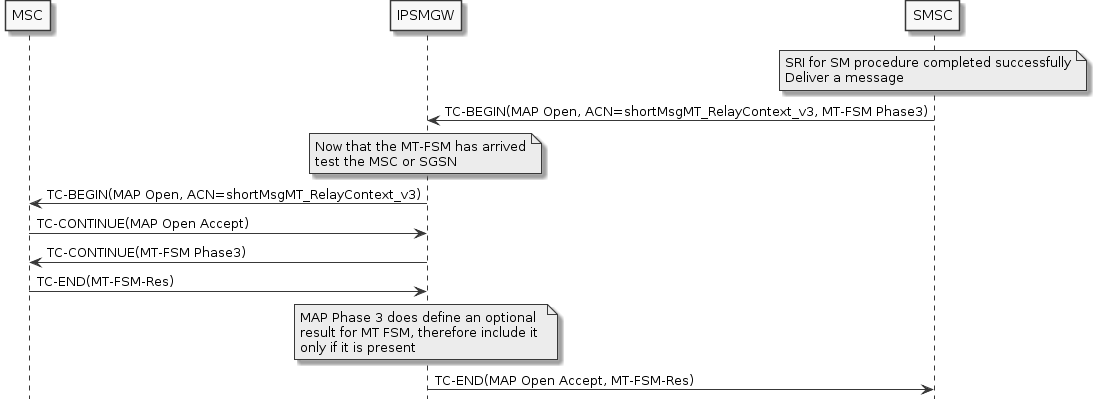This page presents detailed information related to TCAP Application Context Negotiation for the Sentinel IP Short Message Gateway product.
- SRI for SM receipt handling
- MT Forward Short Message negotiation
- SMSC sends MAP Phase 1 Forward Short Message request
- SMSC sends MAP Phase 2+ empty Open Request where MSC does not support Phase 2+
- SMSC sends MAP Phase 2+ non empty Open Request where MSC does not support Phase 2+
- SMSC sends MAP Phase 3 non empty Open Request where MSC supports Phase 2
- Both SMSC and MSC support MAP Phase 3 where a response is provided
- Mapping between versions for Forward Short Message Errors
SRI for SM receipt handling
The Routing Info for Short Message (SRI-SM) Application Context and request are proxied "as-is" between the received SRI-SM and that sent to the HLR. Therefore any errors from the HLR are proxied back towards the initiator.
For more information on the logic of the flow, please refer to Flows for SMS delivery
MT Forward Short Message negotiation
The IP-SM-GW may sit "in-between" any particular SMSC and the home network’s MSCs and SGSNs. As the IP-SM-GW forces MT Forward Short Message operations to route through it, it must implement TCAP Application Context Negotiation.
Each case is represented by a flow.
Mapping between versions for Forward Short Message Errors
MAP Phases 1 and 2 do not define a result type for the Forward Short Message operation. They do define errors. Therefore if a TC-END is received, where there are no errors, the operation is a success.
The different MAP Phases define similar yet different errors for the operations. When application contexts have been downgraded through negotiation, the errors need to be upgraded.
Phase 1 to Phase 2 Error Mapping
An error when using MAP Phase 1 towards the MSC/SGSN needs to be translated to the appropriate error when replying to Phase 2 towards the SMSC. An example is below.
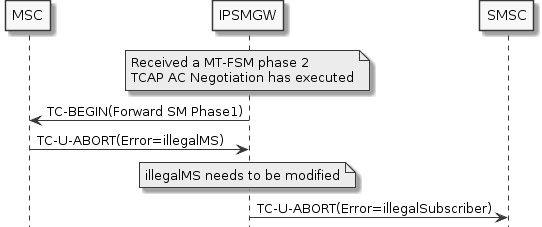
| Phase 1 error response | Mapped Phase 2 error response |
|---|---|
absentSubscriber |
absentSubscriber |
facilityNotSupported |
facilityNotSupported |
illegalMS |
illegalSubscriber |
sm_DeliveryFailure |
sm_DeliveryFailure |
systemFailure |
systemFailure |
unexpectedDataValue |
unexpectedDataValue |
unidentifiedSubscriber |
unidentifiedSubscriber |
Phase 1 to Phase 3 Error Mapping
An error when using MAP Phase 1 towards the MSC/SGSN needs to be translated to the appropriate error when replying to Phase 3 towards the SMSC. An example is as follows:
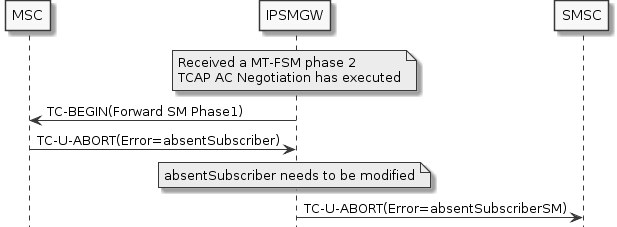
| Phase 1 error response | Mapped Phase 3 error response |
|---|---|
absentSubscriber |
absentSubscriberSM |
facilityNotSupported |
facilityNotSupported |
illegalMS |
illegalSubscriber |
sm_DeliveryFailure |
sm_DeliveryFailure |
systemFailure |
systemFailure |
unexpectedDataValue |
unexpectedDataValue |
unidentifiedSubscriber |
unidentifiedSubscriber |
Phase 2 to Phase 3 Error Mapping
An error when using MAP Phase 2 towards the MSC/SGSN needs to be translated to the appropriate error when replying to Phase 3 towards the SMSC.
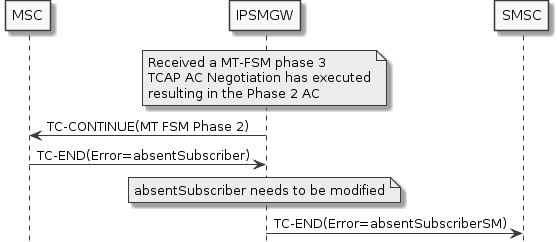
| Phase 2 error response | Mapped Phase 3 error response |
|---|---|
absentSubscriber |
absentSubscriberSM |
dataMissing |
dataMissing |
facilityNotSupported |
facilityNotSupported |
illegalEquipment |
illegalEquipment |
illegalSubscriber |
illegalSubscriber |
sm_DeliveryFailure |
sm_DeliveryFailure |
subscriberBusyForMT_SMS |
subscriberBusyForMT_SMS |
systemFailure |
systemFailure |
unexpectedDataValue |
unexpectedDataValue |
unidentifiedSubscriber |
unidentifiedSubscriber |
